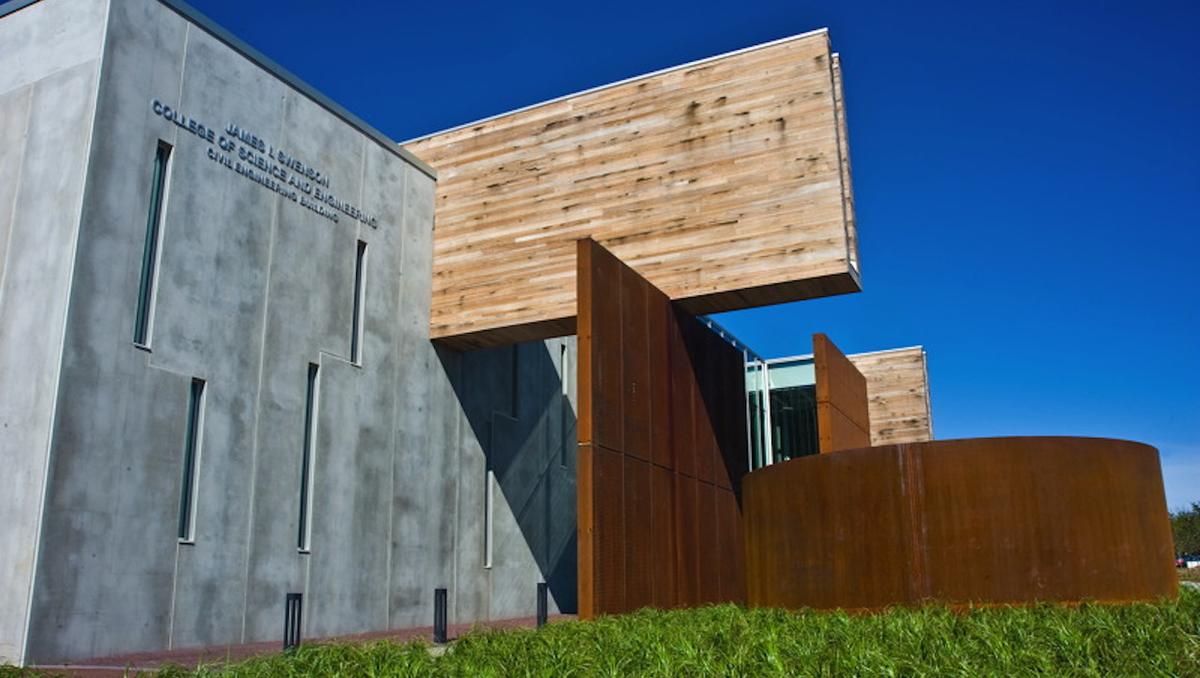News Release — For info contact Lori Melton, [email protected], 218-726-8830.
After months of collaborating with local businesses and campus programs, UMD students in the Civil Engineering and Mechanical and Industrial Engineering departments are ready to share the results of their work. On Tuesday, May 3 from 3-4 p.m., the public is invited to UMD’s Civil Engineering High Bay Lab to review the progress they have made toward advancing sustainability efforts in our region.
Two UMD faculty members, Alison Hoxie and Mary Christiansen, devised the program in 2014 in cooperation with Ecolibrium3, a Duluth non-profit that promotes energy conservation. This year 32 UMD juniors and seniors worked in teams of six on UMD-based projects and two off campus sites. The clients include UMD Dining Services, UMD Housing, Ecolibrium3 and the Pehrson Lodge on Lake Vermilion.
According to Christiansen, “The students get so much out of these projects. By the end of the semester their technical knowledge and professionalism have improved and their sense of pride in their work is obvious. It’s really fun to watch.”
A typical project example is a design and economic analysis of potential solar thermal systems for a UMD dormitory. The new system would help supplement Ianni Hall's hot water requirements. Another project at UMD involves the investigation of more efficient and economical ways of watering some of UMD's athletic fields. One of the designs the students came up with could cut water usage by more than 30%.
Hoxie is excited about the work that’s been done and said, “These projects have been a great way to help UMD and the community become more energy efficient, while at the same time providing students with real world learning opportunities.”
Both of these departments are part of UMD’s Swenson College of Science & Engineering (SCSE). The college has about 3,100 undergraduates and 220 graduate students and is home to ten academic departments, as well as the Large Lakes Observatory, the UMD Air Force ROTC program, and the Iron Range Engineering program. SCSE connects students with hands-on research opportunities through its collaboration with multiple research institutions and area businesses. To learn more, visit: http://www.d.umn.edu/scse/.
